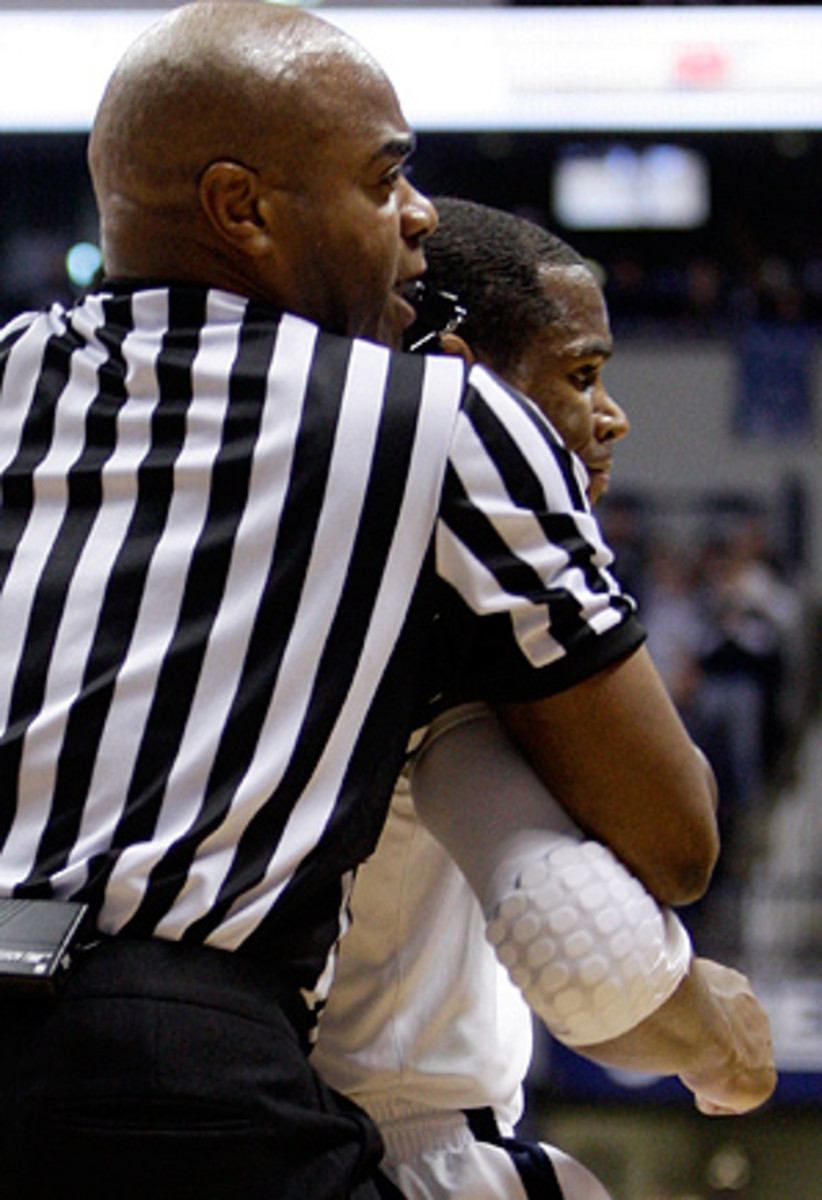Please, no more 'warriors' in sports
It was maybe eight months after the Malice at the Palace -- the infamous brawl between the Indiana Pacers and Detroit Pistons in November 2004 -- and Ron Artest was driving a visitor around Indianapolis. Stopped at a red light, he began belting out lyrics to a playful rap he had written about the fight. As with so much that Artest does, this was odd. On account of his role in the fight, he had been suspended for 73 games, harmed his team immeasurably and brought shame on the entire NBA. Asked why he would sing about the episode and not show more remorse, Artest had a simple answer: "I'm a true warrior."
Actually, he was a tru warrier, Artest's self-christened nickname, his email handle and the name of his record label. All the same, Artest has plenty of company. The Republic of Sports, you see, is awash in warriors. The dozen or so members of Golden State's NBA entry? Those Warriors are vastly outnumbered by warriors of the self-described variety.
Boxer Marco Antonio Barrera? He's 37, but recently said he might fight again because, he asserts, "I am a warrior." For the same reason, another boxer, Kevin McBride, may not fight again: "I am a fighter, I am a warrior, but I probably will step down." In Antonio Rodrigo Nogueira's UFC fight Saturday night, we learned that the Brazilian did not tap out -- preferring instead to suffer a broken arm -- because "he is a warrior."
This warrior class thrives in team sports, too. Two years ago, Dallas Mavericks star Dirk Nowitzki denied that personal problems would exact a price on his game. "I am a warrior," he said. "I will be ready to play." Former Miami Dolphins guard Bob Kuechenberg once explained to the Palm Beach Post how it was that he played in Super Bowl VIII with a broken arm. "I always believed that the true champions, the truly great players, would lay down limb if not life for the team. It sounds silly, but at my essence I am a warrior."
We got another invoking of the Warrior Code last weekend, after the grotesque brawl at the end of the Xavier-Cincinnati game, college basketball's answer to the Artest melee. In what appeared to be an attempt to justify actionable assault and battery, Xavier guard Tu Holloway remarked, "We've got a whole bunch of gangsters in the locker room -- not thugs, but tough guys on the court." (It's a fine distinction.) Xavier coach Chris Mack added that Holloway and teammate Mark Lyons "are warriors on the basketball court."
The sports lexicon, of course, is filled with references to combat with terms befitting the Department of Defense. There are blitzes and bombs, attacks and counterattacks. Even in genteel tennis, we talk about a player's "arsenal of weapons." The periodic calls to ban these terms -- they trivialize war! They glorify combat! -- are usually heavy-handed. Most fans can appreciate a metaphor and can talk about, say, an "aerial assault," without advocating violence.
But consider this a plea to cut the tired term "warrior" from the sports vocabulary. For one, it's non-descriptive. A warrior means ... what exactly? Someone who competes as though losing carried a price in blood? Someone willing to explore the boundaries of his physical limits? Someone who never quits? Isn't that pretty much an occupational requirement for an athlete?
Worse, "warrior" has become code for "thug," a shabby justification for anti-social behavior. Those Xavier and Cincinnati players on Saturday? They acted like children with no impulse control, raging at feeling "disrespected." Calling them "warriors" is a cynical attempt to defend the indefensible.
As always, Artest is zigging where everyone else is zagging. The Tru Warrier? He has now taken on a less-bellicose handle.
Let's hope he's on to something.






